Guy Hadash
Neural network gradient-based learning of black-box function interfaces
Jan 13, 2019
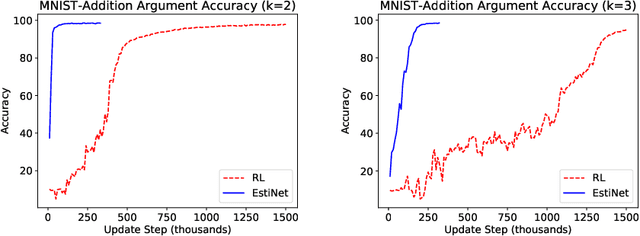

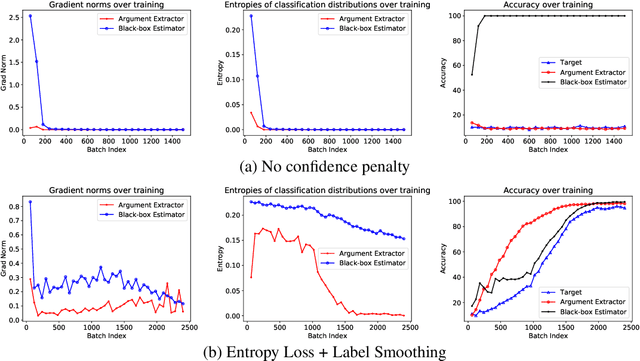
Abstract:Deep neural networks work well at approximating complicated functions when provided with data and trained by gradient descent methods. At the same time, there is a vast amount of existing functions that programmatically solve different tasks in a precise manner eliminating the need for training. In many cases, it is possible to decompose a task to a series of functions, of which for some we may prefer to use a neural network to learn the functionality, while for others the preferred method would be to use existing black-box functions. We propose a method for end-to-end training of a base neural network that integrates calls to existing black-box functions. We do so by approximating the black-box functionality with a differentiable neural network in a way that drives the base network to comply with the black-box function interface during the end-to-end optimization process. At inference time, we replace the differentiable estimator with its external black-box non-differentiable counterpart such that the base network output matches the input arguments of the black-box function. Using this "Estimate and Replace" paradigm, we train a neural network, end to end, to compute the input to black-box functionality while eliminating the need for intermediate labels. We show that by leveraging the existing precise black-box function during inference, the integrated model generalizes better than a fully differentiable model, and learns more efficiently compared to RL-based methods.
Rank and Rate: Multi-task Learning for Recommender Systems
Jul 31, 2018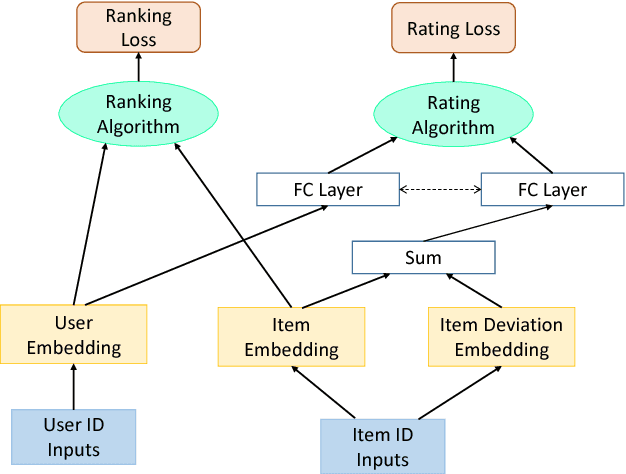
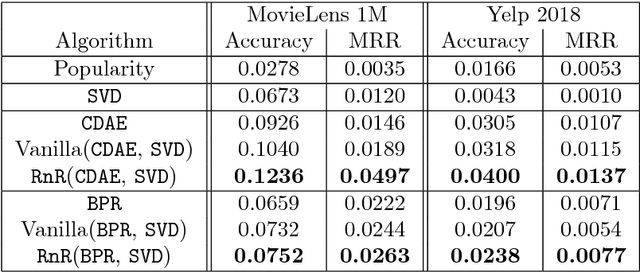
Abstract:The two main tasks in the Recommender Systems domain are the ranking and rating prediction tasks. The rating prediction task aims at predicting to what extent a user would like any given item, which would enable to recommend the items with the highest predicted scores. The ranking task on the other hand directly aims at recommending the most valuable items for the user. Several previous approaches proposed learning user and item representations to optimize both tasks simultaneously in a multi-task framework. In this work we propose a novel multi-task framework that exploits the fact that a user does a two-phase decision process - first decides to interact with an item (ranking task) and only afterward to rate it (rating prediction task). We evaluated our framework on two benchmark datasets, on two different configurations and showed its superiority over state-of-the-art methods.
Estimate and Replace: A Novel Approach to Integrating Deep Neural Networks with Existing Applications
Apr 24, 2018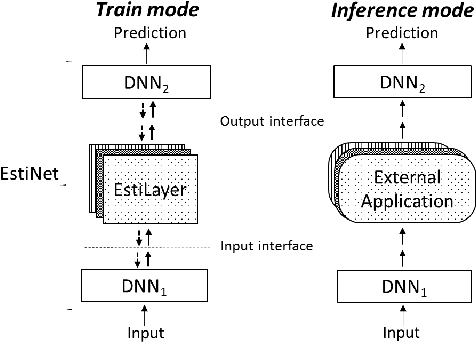
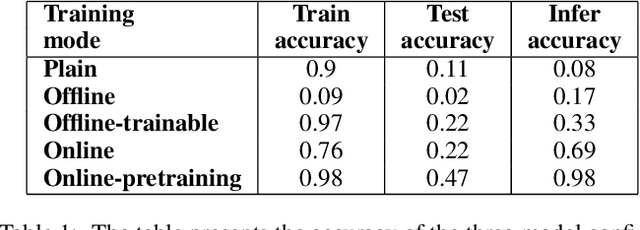
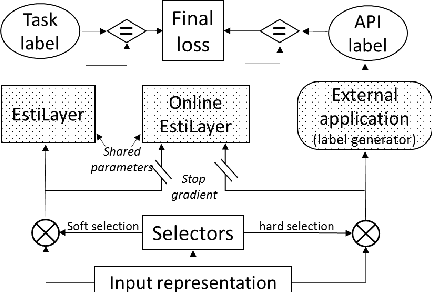

Abstract:Existing applications include a huge amount of knowledge that is out of reach for deep neural networks. This paper presents a novel approach for integrating calls to existing applications into deep learning architectures. Using this approach, we estimate each application's functionality with an estimator, which is implemented as a deep neural network (DNN). The estimator is then embedded into a base network that we direct into complying with the application's interface during an end-to-end optimization process. At inference time, we replace each estimator with its existing application counterpart and let the base network solve the task by interacting with the existing application. Using this 'Estimate and Replace' method, we were able to train a DNN end-to-end with less data and outperformed a matching DNN that did not interact with the external application.
 Add to Chrome
Add to Chrome Add to Firefox
Add to Firefox Add to Edge
Add to Edge